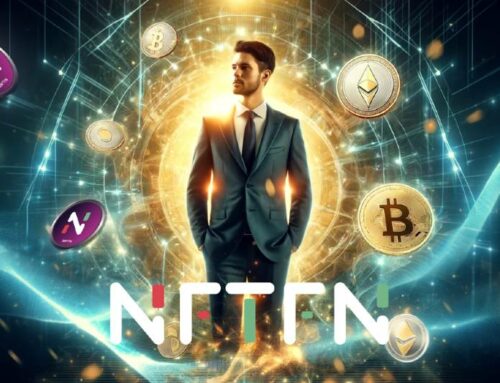Maximizing DeFi Opportunities with Non Custodial Wallets
Using non-custodial wallets is an important part of engaging in DeFi. Giving users full control over their funds, these wallets enable people to interact directly with decentralized applications (DApps) on a variety of different blockchain networks.
DeFi, or decentralized finance, has gained significant popularity in recent years as a way to access financial services without relying on traditional intermediaries. One important aspect of participating in DeFi is the use of non-custodial wallets. These wallets give users full control over their funds and allow them to interact directly with decentralized applications (DApps) on various blockchain networks.
That said, non custodial wallets provide individuals with the ability to maximize their DeFi opportunities by giving them full control over their funds and direct access to decentralized applications. However, it is important to approach DeFi with caution, conduct proper research and understand the risks involved before diving into this exciting and rapidly growing sector of the financial industry.
The role of non custodial wallets in DeFi
Non-custodial wallets play a crucial role in the decentralized finance (DeFi) ecosystem. In traditional finance, individuals typically rely on centralized institutions such as banks to hold and manage their funds. However, DeFi aims to eliminate the need for intermediaries by allowing users to have full control over their assets. Non-custodial wallets, also known as self-custody wallets, enable users to securely store and manage their cryptocurrencies and digital assets without relying on a third party. These wallets provide users with private keys, which are essential for accessing and controlling their funds.
In the context of DeFi, non-custodial wallets are particularly important because they allow users to interact with various decentralized applications and protocols. Users can connect their wallets to these DApps to perform a range of financial activities such as lending, borrowing, trading and yield farming. By using non-custodial wallets, users retain ownership and control over their funds throughout their DeFi interactions.
This means that they are not required to trust centralized exchanges or platforms with their assets, reducing the risk of hacks, theft, or even loss due to platform failures. These wallets enable users to maintain their privacy and anonymity as they are not required to provide personal information or undergo identity verification processes. This aligns with the core principles of decentralization and user empowerment that underpin the DeFi movement.
Getting the most out of DeFi opportunities with non custodial wallets
Maximizing DeFi opportunities with non-custodial wallets involves several key considerations. Firstly, it is important to choose a reputable and secure wallet that supports the blockchain networks and DApps you wish to use. Popular non-custodial wallet options include MetaMask, Trust Wallet and Ledger Live. Once you have set up your non-custodial wallet, you can explore the wide range of DeFi opportunities available.
This includes participating in decentralized lending and borrowing platforms, yield farming, liquidity provision on decentralized exchanges (DEXs), and staking in various protocols. These activities can potentially generate higher returns compared to traditional financial instruments, but they also come with their own risks, such as smart contract vulnerabilities and market volatility.
To maximize your DeFi opportunities, it is crucial to conduct thorough research, understand the risks involved, and diversify your investments. Keep in mind that the DeFi space is constantly evolving, and new projects and opportunities emerge regularly. Staying informed and keeping up with the latest developments is essential to make informed investment decisions.
Choosing the right non custodial wallet for DeFi
When it comes to choosing the right non-custodial wallet for DeFi, there are a few key factors to consider. Firstly, security should be your top priority so look for wallets that offer strong encryption and secure storage of your private keys. Make sure the wallet has a good reputation and has undergone thorough security audits. Compatibility with the DeFi platforms you plan to use is also important.
Check if the wallet supports the necessary protocols and can interact seamlessly with the DeFi applications you want to access. User experience is another crucial aspect. Look for wallets that have a user-friendly interface and provide a smooth and intuitive experience. This will make it easier for you to navigate and manage your DeFi assets.Consider the wallet’s community support and development activity.
A wallet with an active community and regular updates is more likely to stay up-to-date with the latest security measures and feature enhancements. You should also consider the wallet’s reputation and track record so look for reviews and feedback from other users as this will give you a glimpse into their experiences and any potential issues. It’s always recommended to do your own research and choose a wallet that aligns with your specific needs and preferences.

Don’t miss out – Find out more today



